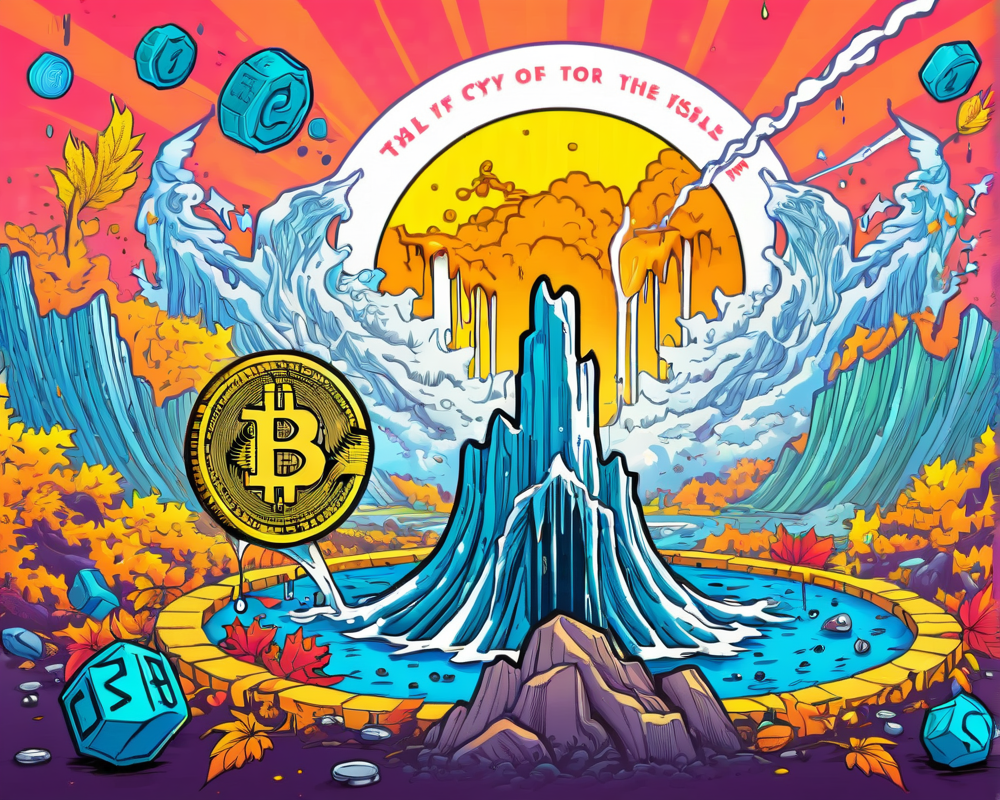Genesis and the Whisper of Bankruptcy
It seems the bear market has started its annual tradition of claiming a big fish, and this time, it’s Genesis, the lending arm of Digital Currency Group (DCG). Their Chapter 11 bankruptcy filing on January 19 might have everyone from casual investors to seasoned analysts shaking their heads in disbelief. Just when you thought it couldn’t get worse, right? After all, it wasn’t long ago that DCG was a titan in the crypto world. Founded by Barry Silbert in 2015, DCG’s stellar reputation is now teetering like a tightrope walker carrying a hefty backpack of bad debts.
Uh Oh, Who’s Owed What?
So, what’s the scoop on those debts? Genesis revealed it owes a whopping $3.4 billion to its 50 largest creditors. Among them, the venerable Gemini, run by the Winklevoss twins, is left holding a bag containing $765 million. It’s like a high-stakes poker game gone wrong, with debts piled higher than your typical New Year’s resolution. And if you thought that was shocking, brace yourself: Decentraland, an idea that seemed fabulous two years ago, is reportedly owed $55 million, raising eyebrows and questions galore.
- Gemini: $765 million
- Decentraland: $55 million
- VanEck: $53 million
The Web of Connections: Trust Gets Pulled Apart
As the layers of this case unravel, more bizarre connections are exposed. How on Earth did Genesis, with a history of lending to major players, find itself owing funds to a project under its own umbrella? Your guess is as good as mine, but the intertwining debts feel like an episode of a confusing soap opera. Adam Cochran, a financial commentator, questioned the wisdom behind Genesis’ inflated loans to Decentraland while simultaneously holding millions in tokens of the same. It’s like borrowing money from your friend to pay off a tab at their favorite restaurant.
The Ripple Effect: Where Does This Leave Us?
The contagion effect of Genesis’ bankruptcy raises alarms about the industry’s health. With prominent failures like FTX and Three Arrows Capital still fresh in people’s minds, trust is a commodity quickly vanishing from the crypto space. Incredibly, bad financial practices seem to have bled through numerous firms, suggesting a systemic issue rather than a one-off disaster.
“Unless Barry and DCG come to their senses and make a fair offer to creditors, we will be filing a lawsuit against Barry and DCG imminently.” — Cameron Winklevoss
Rebuilding Trust: Can It Be Done?
As the dust settles, one question looms large: how do we rebuild trust? It’s no small task. Just as in any broken relationship, transparency and action are key. Asset prices may fluctuate like a roller coaster, but without solid foundations and responsible management, we’re left with nothing but nauseating uncertainty.
It’s time for the industry to rethink its woeful approach to risk management. Let’s collectively bet on companies proving their worth, rather than relying on as yet invisible handshakes and dubious reports. The next generation of crypto enthusiasts deserves a better foundation, and perhaps a lesson or two on skepticism would do everyone good. So here’s hoping the industry remembers: trust, like a good pair of socks, needs to be handled with care.




